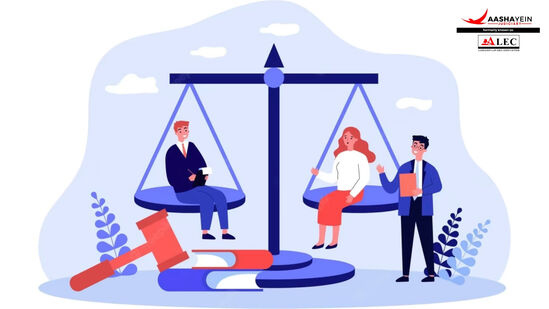Introduction
In the landmark case of Vijaya Manohar Arbat vs. Kashirao Rajaram Sawai and Ors (1987), the Supreme Court of India examined Section 125 of the Code of Criminal Procedure (CrPC), 1973, which deals with providing maintenance to dependents. The Court interpreted the use of the term "he" in the section and ruled that both sons and daughters have an obligation to support their parents if the parents are unable to take care of themselves.
Brief fact of the case
In this case related to Section 125 of the Code of Criminal Procedure (Cr.P.C.), the main question was whether the respondent (the father) had the right to ask for maintenance from the appellant (his daughter). The appellant is a doctor and is the married daughter of the respondent and his first wife, who passed away in 1948. After her death, the respondent remarried and was living with his second wife. He went to the Judicial Magistrate and applied for maintenance, saying he was unable to support himself financially.
Legal aspect of the case
Section 125 of the Code of Criminal Procedure (CrPC) in India allows certain people, like wives, children, and parents, to request financial support (maintenance) from their spouses, fathers, or children. This section ensures that those who cannot support themselves are provided with necessary financial help.
Section 125 (1) (d) of CRPC says that-
“If any person having sufficient means neglects or refuses to maintain-
(d) his father or mother, unable to maintain himself or herself, a Magistrate of the first class may, upon proof of such neglect or refusal, order such person to make a monthly allowance for the maintenance of his wife or such child, father or mother, at such monthly rate, as such Magistrate thinks fit, and to pay the same to such person as the Magistrate may from time to time direct”
You can also read the Blog by visiting [Blog]
For more information, visit [Aashayein Enquiry Section]
Arguments
The Appellant argued that, according to clause (d) of Section 125(1), a father could not ask for maintenance from his daughter, whether she was married or not. She pointed out that the word "his" in clause (d) showed that only sons were responsible for supporting their parents. She argued that if lawmakers wanted daughters to be included in this duty, they would not have used the word "his"
Issues
The issue before the court to decide was-
- Whether daughter is liable to pay maintenance to parents?
- Whether the obligation to take care of parents is only of 'son'?
Ratio of the case
The Supreme Court ruled that Section 125(1) of the Criminal Procedure Code allows a Magistrate to order someone to pay a monthly maintenance allowance for family members like a wife, children, father, and mother, under certain conditions. The Court recognized that while it is morally expected for children to support their parents, it is unfair for parents to go without food if their children can afford to help. The Court clarified that the word "his" in the law does not exclude daughters from claiming maintenance. It referred to Section 8 of the Indian Penal Code, which states that the pronoun “he” includes both males and females, and Section 13(1) of the General Clauses Act, which interprets "he" to mean "she." Therefore, the Court concluded that the word "his" in Section 125(1) Cr.P.C. includes both sons and daughters, allowing parents to seek maintenance from their daughters if the other conditions are met.

